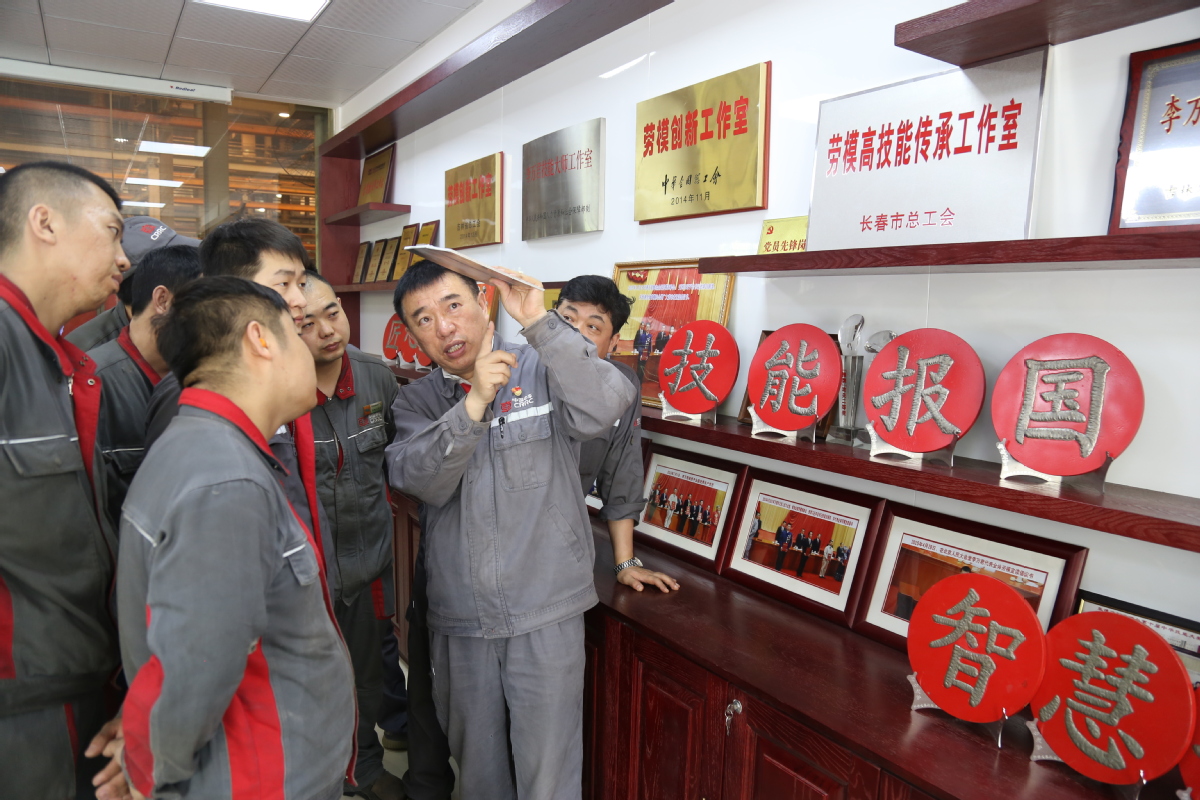Welder sparks change in profession


'Great Country Craftsman' gives trains a boost, passes on skills to apprentices
Thirty-four years ago, Li Wanjun graduated from a vocational high school in Changchun, capital of Jilin province, and was assigned to work as a welder for the Changchun Railway Vehicle Company. Together with 28 other freshmen, he began his career welding vehicle parts.
A year later, 25 of them had quit, finding welding neither clean nor easy. Working with torches that produced flames as hot as 2,300 C, the workshop was a place of smoke and sparks, where the welders sweated beneath their canvas uniforms and closed welding helmets.
Li chose to stay on after his father, who worked at the same company and had received the model worker award on several occasions, told him that every trade has its master, and that he should practice and work hard.
Over the decades, the 52-year-old has participated in the production of more than 20 different kinds of railcar bogies in China, including the ones for the Fuxing high-speed train, which runs at speeds of up to 350 kilometers per hour.
A bogie is an undercarriage, a system of wheels and springs attached to the railcar that supports the body of the train, keeping it stable and absorbing vibration from the tracks to smooth the ride.
In 2012 and 2017, Li was elected as a deputy to the National People's Congress and in 2017, became the first technical worker in the province to be granted the title of professor. Until then, workers could earn certificates that rated their technical level, but were not able to earn titles in the educational field.
"The reform of the professional title system has improved the social status of skilled workers, and inspired us all to work harder," Li said.























